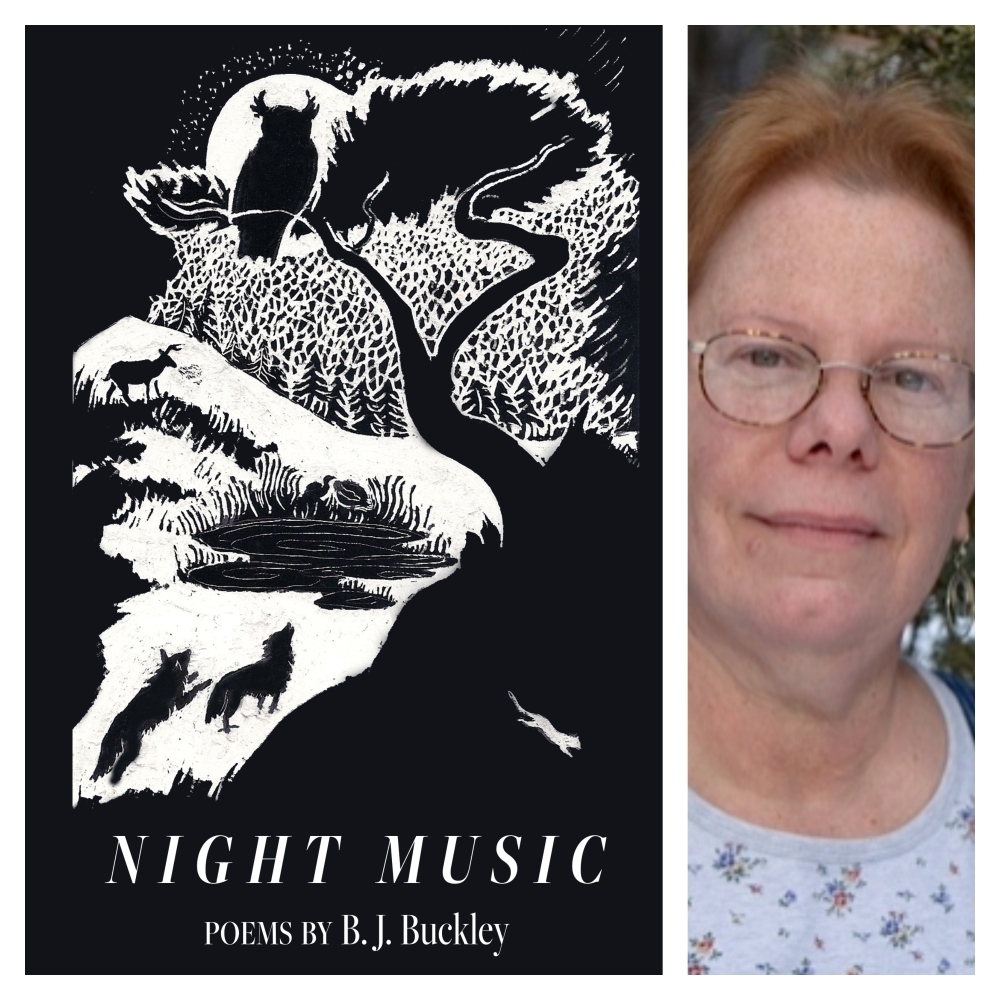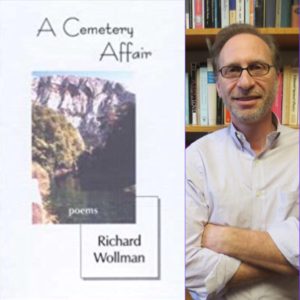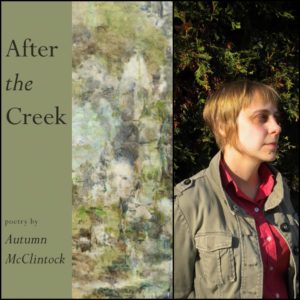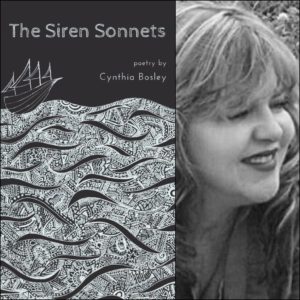For at least two decades, I have been a fan of B. J. Buckley’s poems. This ambitious collection of poems addresses the work of three geniuses: Hiroshige, Japanese master painter who heavily influenced the work of Paul Gaugin, Monet, and the French impressionists; Chopin and his piano Nocturnes; and Pablo Neruda’s love poems. B. J.’s deft use of sound and image, her deep passion and intelligence, inform us while they resound in such lines as “How is it that you have melted like early snow?/I would sew up my heart with a thread/of crows, I would mend the worn shoes/of my despair…” This is a magnificent collection, each poem a constellation of loss, longing, and love written in a delightful spareness and sumptuous abundance. Informed by her exquisite understanding of the wild world, B. J.’s metaphors run the gamut from sensual to mystical to spiritual, her poetry at once containing and bursting with longing. “Fragile voles throbbing in the grass, twitch/of tiny whisker,/soft churr of nested birds/who’ve mistaken the moon/for morning.” I am utterly charmed by metaphors that turn line after line to surprise and enlightenment. There are few poets who write with such fulsome genius.
B. J. Buckley’s Night Music is an indispensable collection. Buy it. Read it aloud to someone you love.
–Pamela Uschuk, Editor-In-Chief, Cutthroat, a Journal of the Arts, American Book Award, Author of REFUGEE, Red Hen Press, 2022.
In Night Music, B. J. Buckley dips deeply into the sensuous world where bodies, trees, horses, red bulls, moons, light, and darkness interact, intersect, coalesce, and collide in ways that constantly surprise and delight us. Buckley’s attention to sensory detail – to the sights, the textures, the smells and tastes of this world – is present in all her work, but in Night Music this attention has been honed to an astonishing point. Whether she writing in the voice of Hiroshige’s mistress, in the first section of the book, or Chopin’s Nocturnes, or the love poems (after Neruda) in the last section of the book, she moves through diverse physical and emotional landscapes. This travel never feels forced but pulls the reader along as if on a river. She asks in one poem, “How is it that nothing holds us?”, and the question contains both the emptiness of “nothing” and the transformation of “nothing” into something that is holding us, as if we see/hear the line with two different lenses. B. J. Buckley recreates the world, over and over in this remarkable book.
–Jane E Wohl, Ph.D, author of Beasts in Snow, Triage, Learning from Old Masters, and Bound Feet
B. J. Buckley’s Night Music joins the languages of 18th century Japanese painter Hiroshige, 19th century Polish composer Chopin, and 20th century Chilean poet Neruda with her own “melancholy inquiries” into “this awkward uneven pleading / of desire” and “that luminous / emptiness.” It would be hard to find another poet who could bring together the great ukiyo-e master, the composer of twenty-one Nocturnes, and the author of Twenty Love Poems and a Song of Despair. Such is the “bright script” of B. J. Buckley “on the threshold between disturbance and seasons.” Her “songs of shadow,” “broken on the altar of unbearable / sweetness,” are as sensual among human lovers as they are intimate with the natural world, especially of course, the animals of the night: “the owls’ / assertive questioning”; “voles throbbing in the grass”; “bats harvest the fields of air.” B. J. Buckley’s sonic litanies, devotional ekphrases, and luminous personae, their “fiery signatures”, court darkness like “lanterns in the fog.” Dear Reader, these verses offer you a “fire not yet gone cold.” Come, their “melodies burning”!
–Jami Macarty, author of The Minuses and The Landscape of the Wait
Sensuous and wildly imaginative, B. J. Buckley’s collection, Night Music, takes readers on a journey that is alternately meditative and erotic, exhilarating and sorrowful, carnal and ethereal. Buckley’s poetic skill and natural-world knowledge combine to express the craving, delight, and grief induced by seismic love. Inspired by Hiroshige’s art, Chopin’s music, and Neruda’s poetry, these poems create a world of emotion, immersing readers in an alternate universe where “… the great owls / have nested—uneven clutch of eggs, / hard throbbing planets […] little earthquakes / of down and talon, / tremors, aftershocks of / whatever shock the wild bloody love / of owls must be.” While consistently intelligent and masterful, these poems remain accessible. Regardless of familiarity with Chopin’s Nocturne’s, readers will recognize their own fingers as the “fragile deer running / through the forests of soft hair, / that glance over a shoulder. […] And we’re always leaping, / the sonata half-memorized, / our fingers, old or young, so clumsy / with desire—grass, pear, belly, / pine, / we’re too small to hold it.”
–Mary Beth Hines, author of Winter at a Summer House






Reviews
There are no reviews yet.